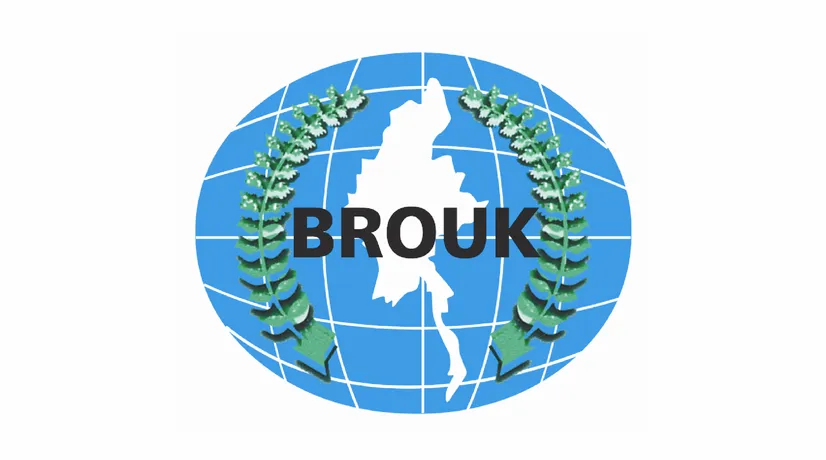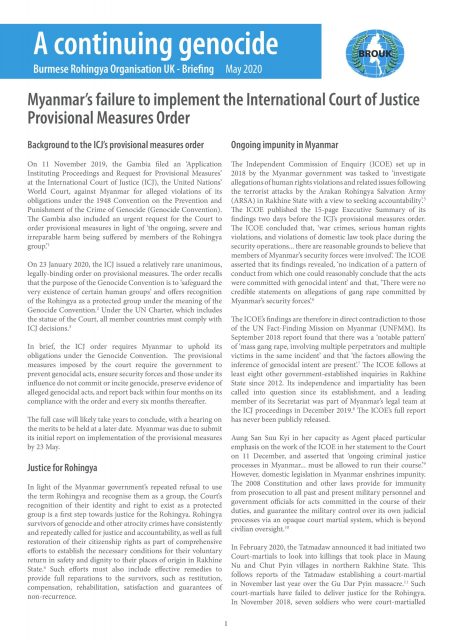A continuing genocide – Myanmar’s failure to implement the International Court of Justice Provisional Measures Order
24 May 2020


Background to the ICJ’s provisional measures order
On 11 November 2019, the Gambia filed an ‘Application Instituting Proceedings and Request for Provisional Measures’ at the International Court of Justice (ICJ), the United Nations’ World Court, against Myanmar for alleged violations of its obligations under the 1948 Convention on the Prevention and Punishment of the Crime of Genocide (Genocide Convention). The Gambia also included an urgent request for the Court to order provisional measures in light of ‘the ongoing, severe and irreparable harm being suffered by members of the Rohingya group.’
On 23 January 2020, the ICJ issued a relatively rare unanimous, legally-binding order on provisional measures. The order recalls that the purpose of the Genocide Convention is to ‘safeguard the very existence of certain human groups’ and offers recognition of the Rohingya as a protected group under the meaning of the Genocide Convention. Under the UN Charter, which includes the statue of the Court, all member countries must comply with ICJ decisions.
In brief, the ICJ order requires Myanmar to uphold its obligations under the Genocide Convention. The provisional measures imposed by the court require the government to prevent genocidal acts, ensure security forces and those under its influence do not commit or incite genocide, preserve evidence of alleged genocidal acts, and report back within four months on its compliance with the order and every six months thereafter.
The full case will likely take years to conclude, with a hearing on the merits to be held at a later date. Myanmar was due to submit its initial report on implementation of the provisional measures by 23 May.
Justice for Rohingya
In light of the Myanmar government’s repeated refusal to use the term Rohingya and recognise them as a group, the Court’s recognition of their identity and right to exist as a protected group is a first step towards justice for the Rohingya. Rohingya survivors of genocide and other atrocity crimes have consistently and repeatedly called for justice and accountability, as well as full restoration of their citizenship rights as part of comprehensive efforts to establish the necessary conditions for their voluntary return in safety and dignity to their places of origin in Rakhine State. Such efforts must also include effective remedies to provide full reparations to the survivors, such as restitution, compensation, rehabilitation, satisfaction and guarantees of non-recurrence.
Announcements
28 February 2025
Asian NGO Network on National Human Rights Institutions , CSO Working Group on Independent National Human Rights Institution (Burma/Myanmar)
Open letter: Removal of the membership of the dis-accredited Myanmar National Human Rights Commission from the Southeast Asia National Human Rights Institution Forum

Progressive Voice is a participatory rights-based policy research and advocacy organization rooted in civil society, that maintains strong networks and relationships with grassroots organizations and community-based organizations throughout Myanmar. It acts as a bridge to the international community and international policymakers by amplifying voices from the ground, and advocating for a rights-based policy narrative.